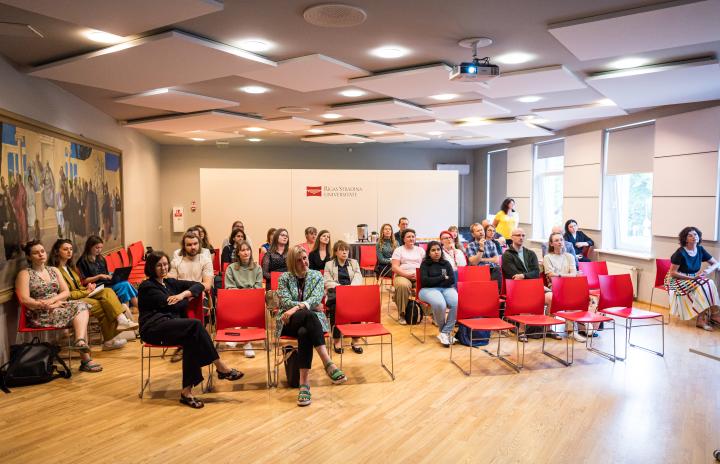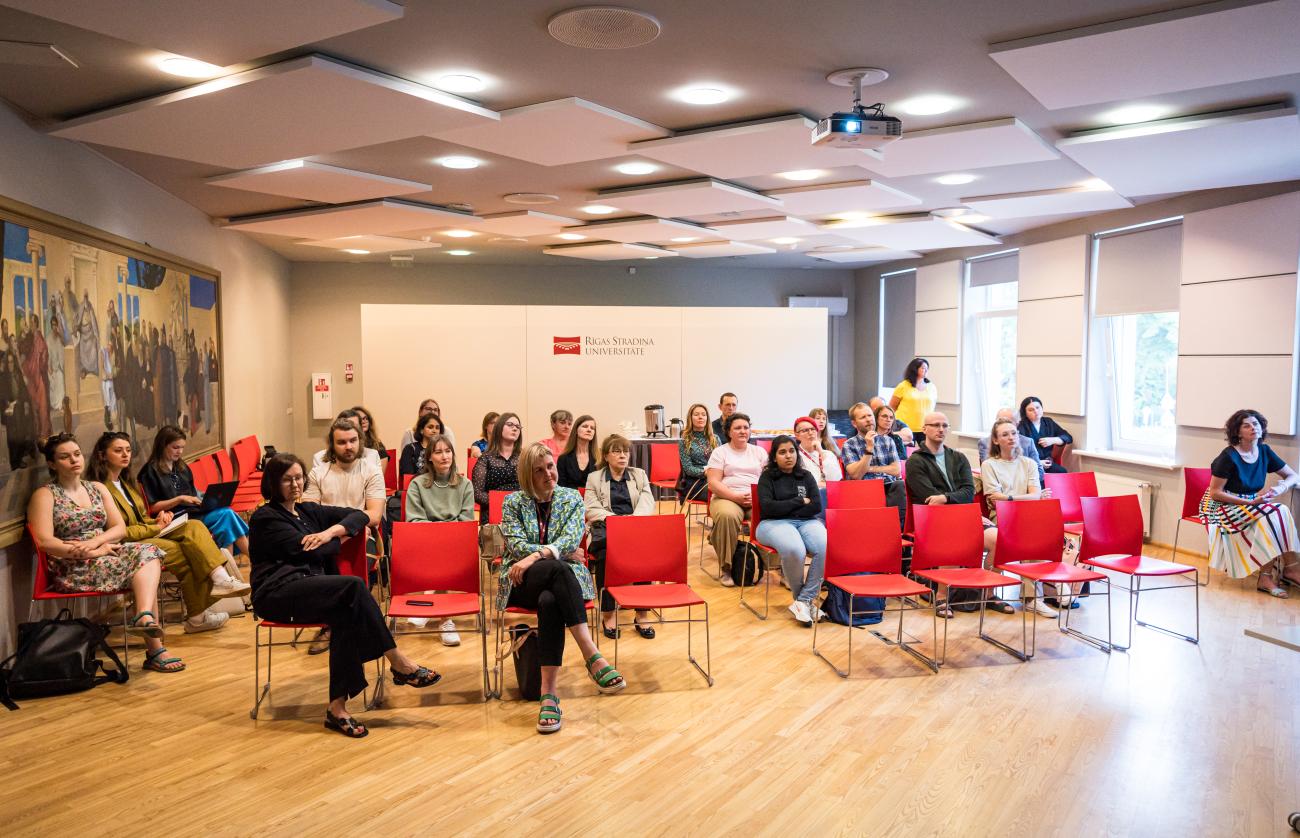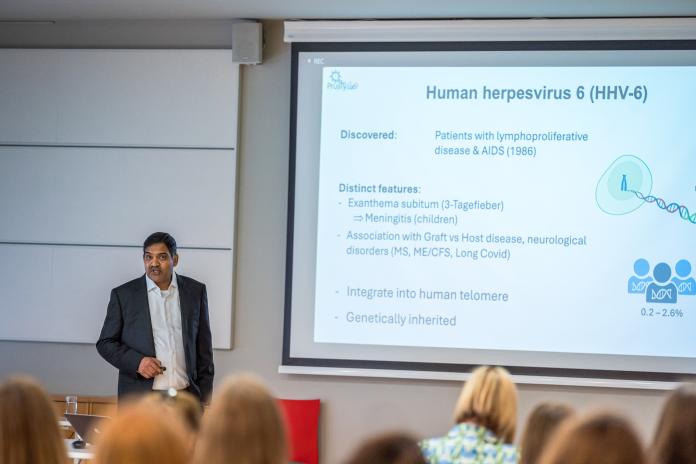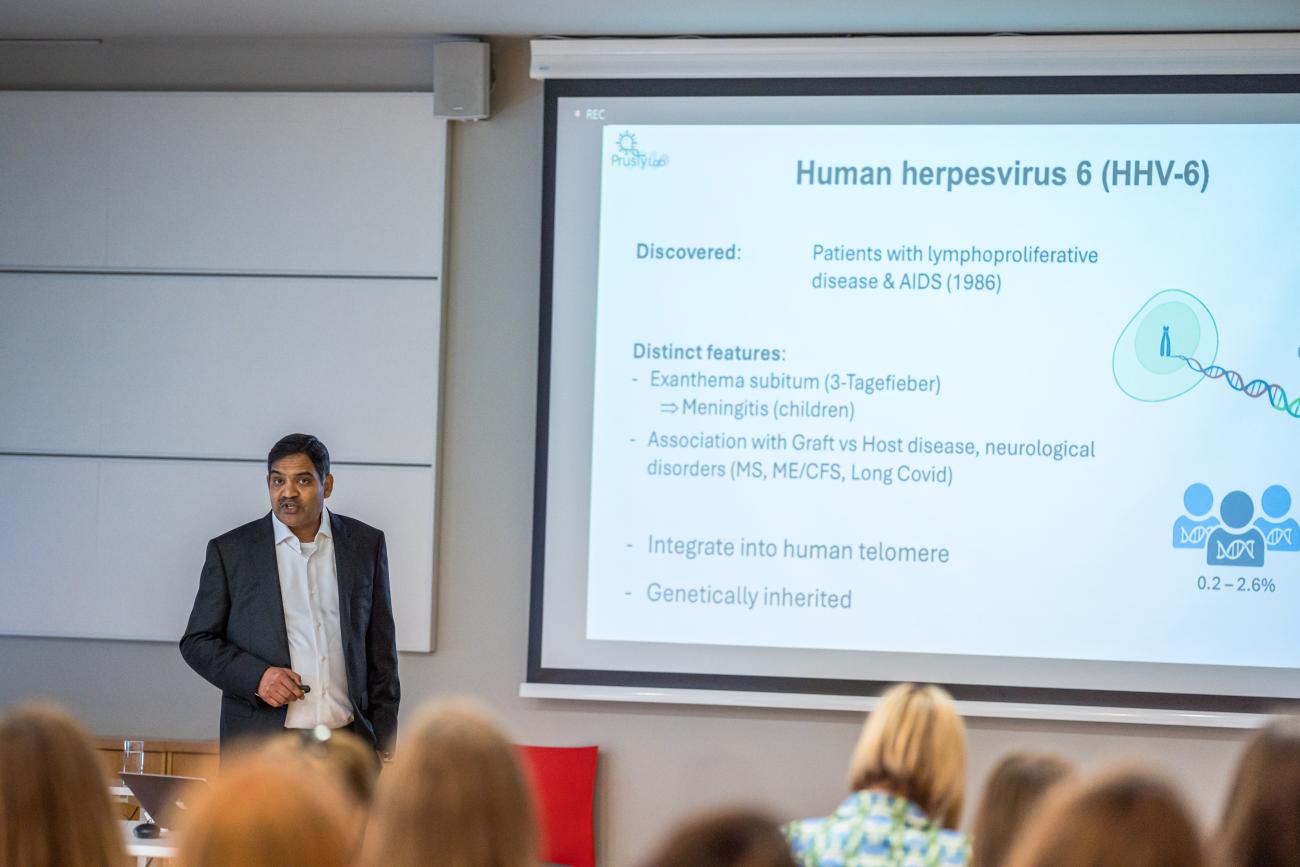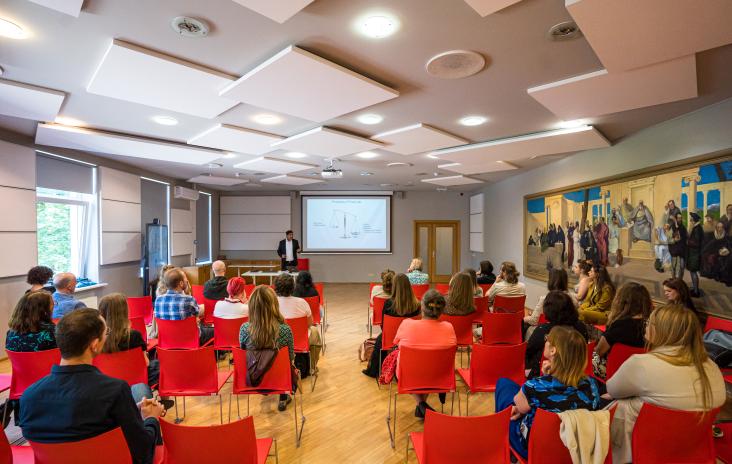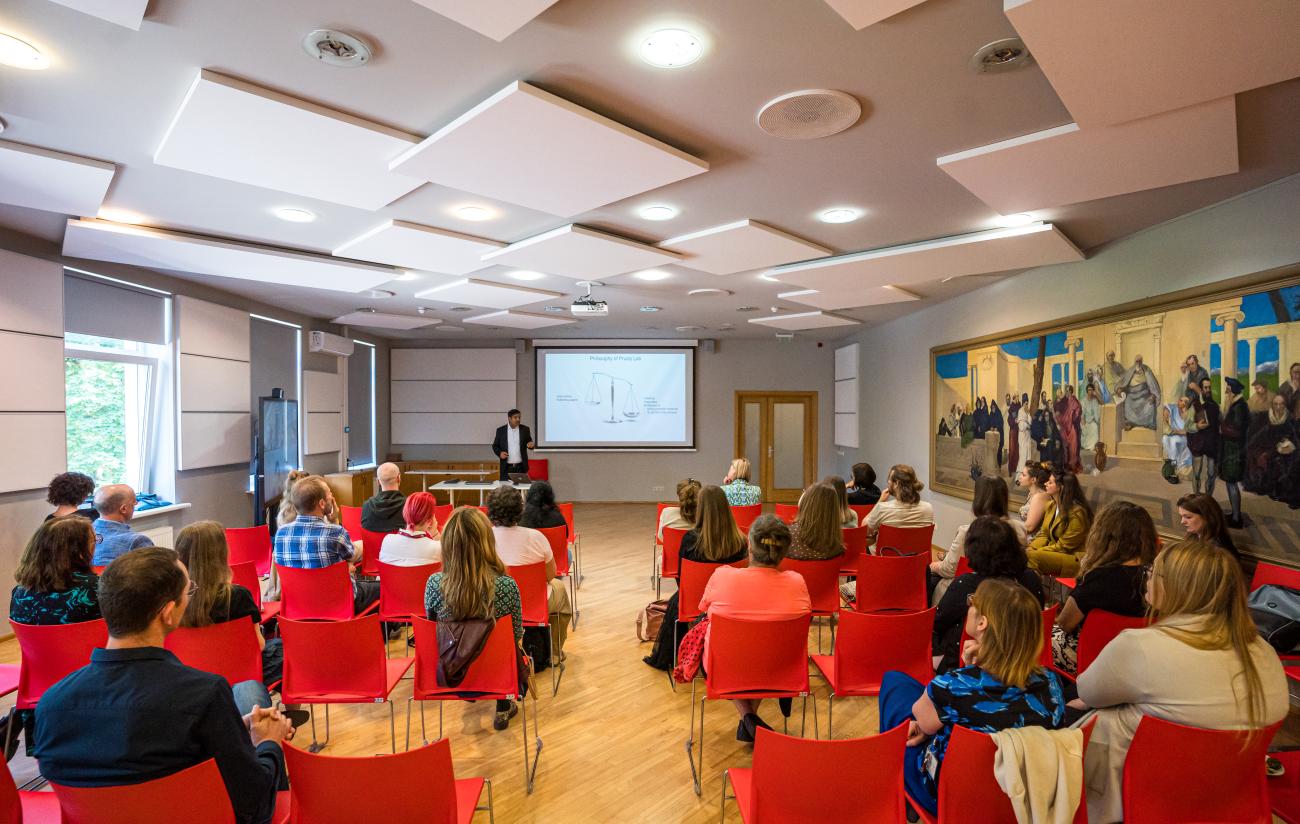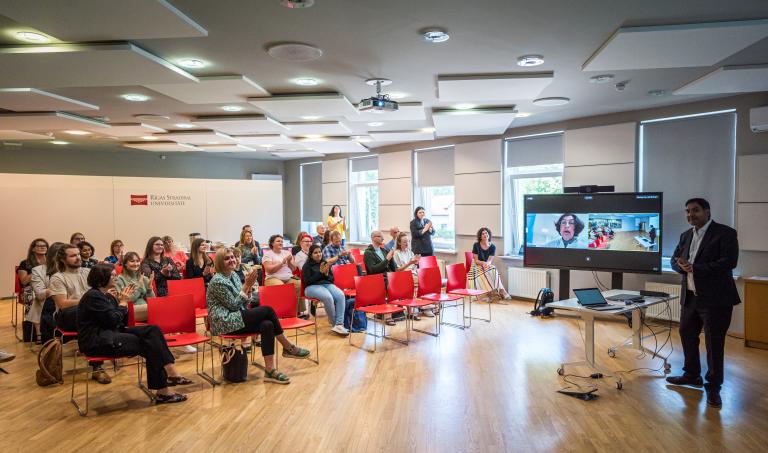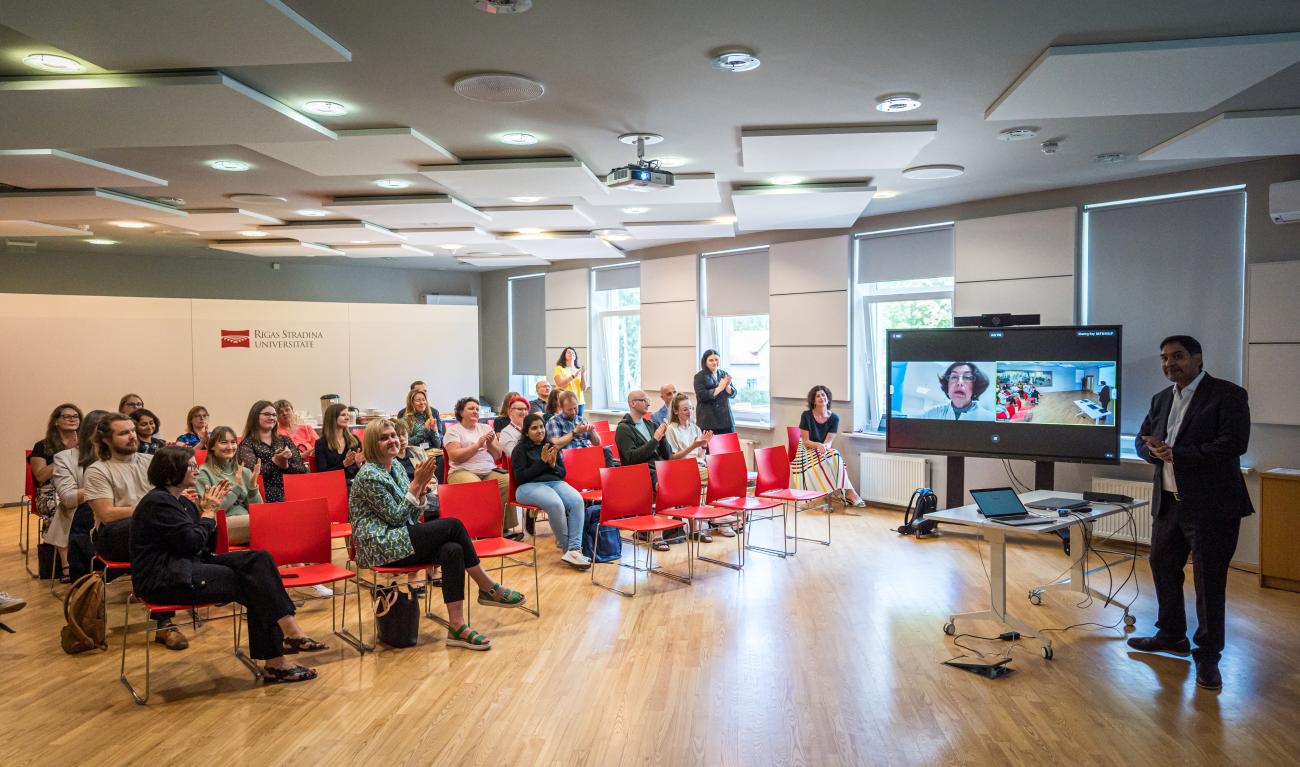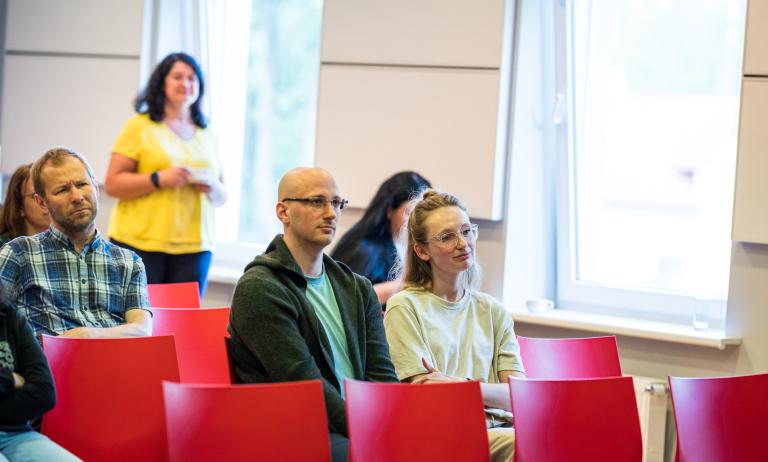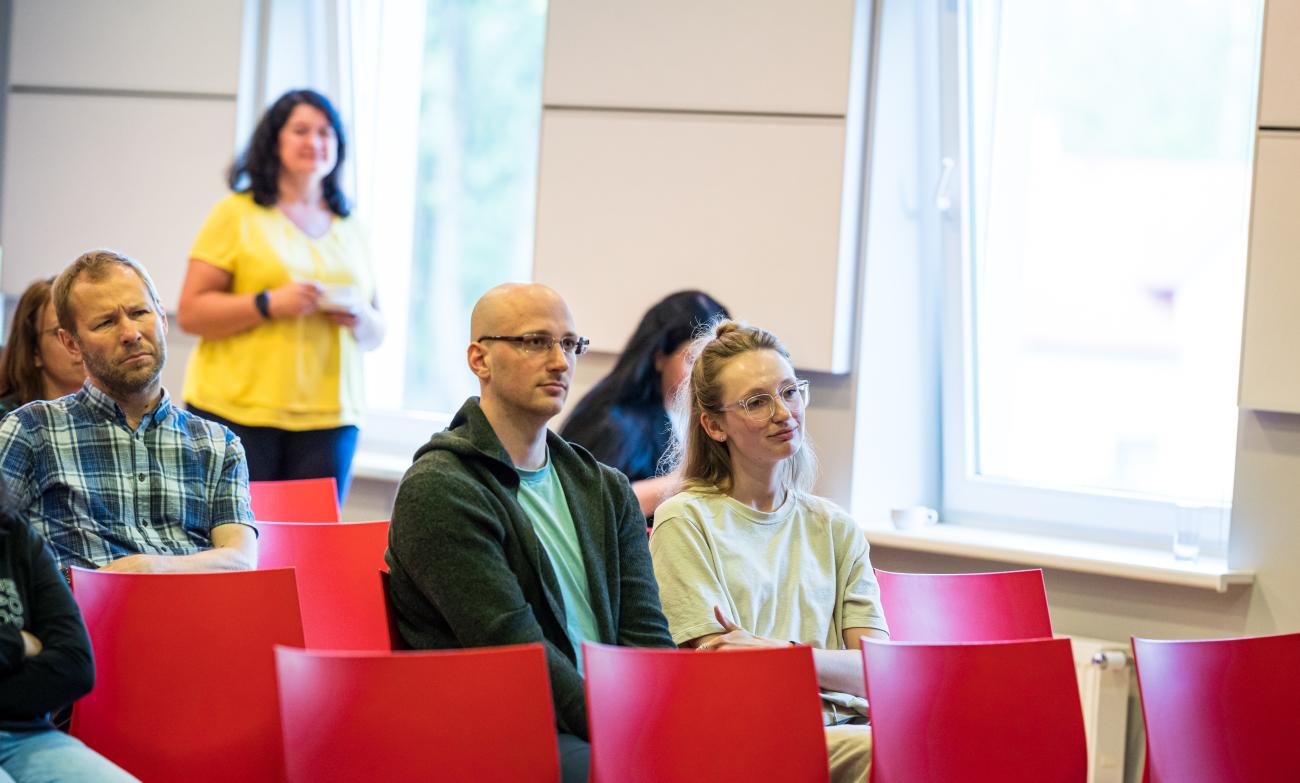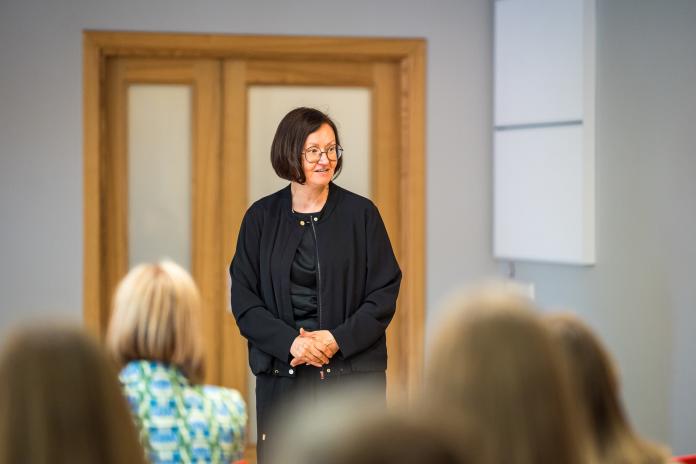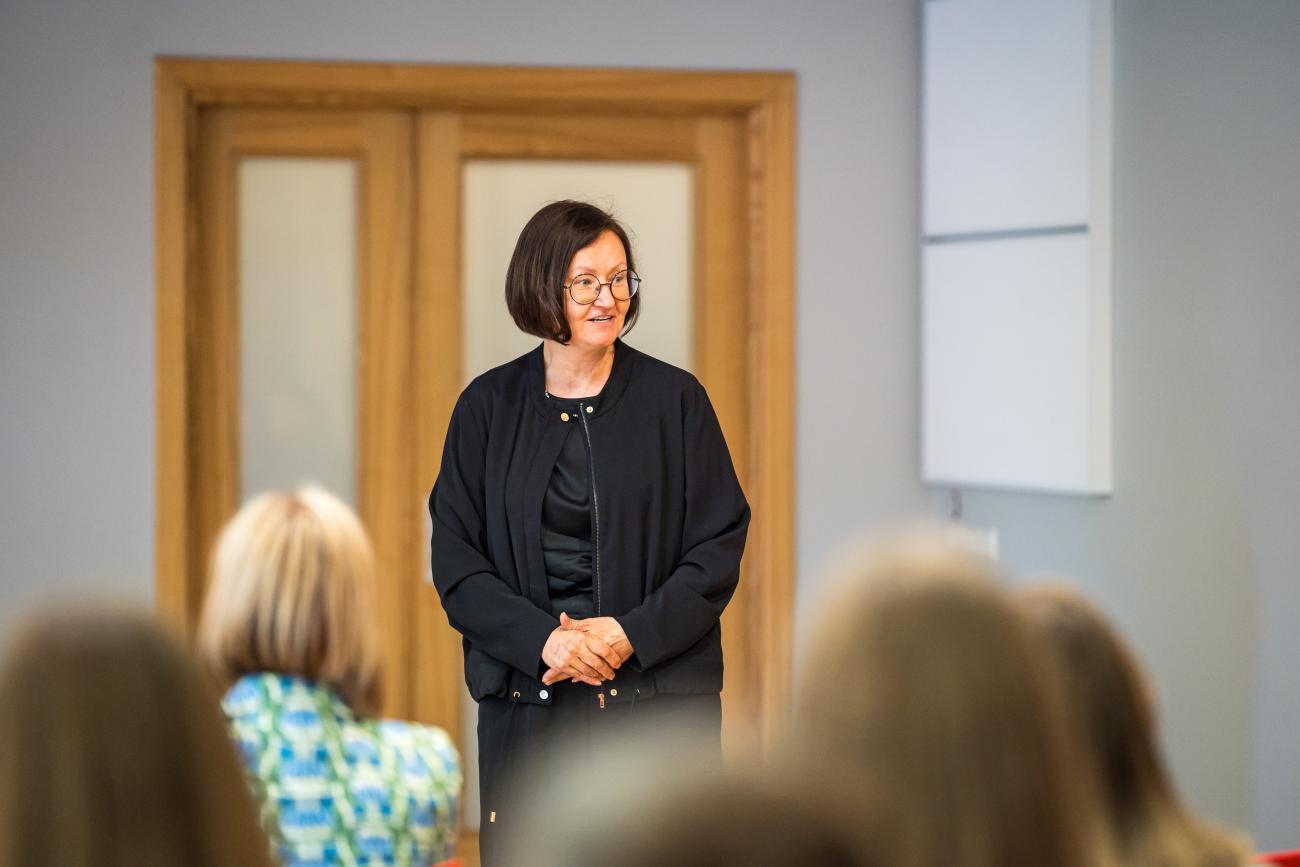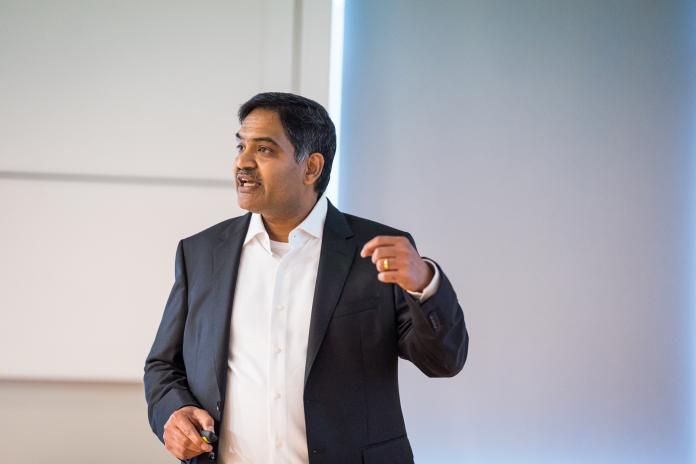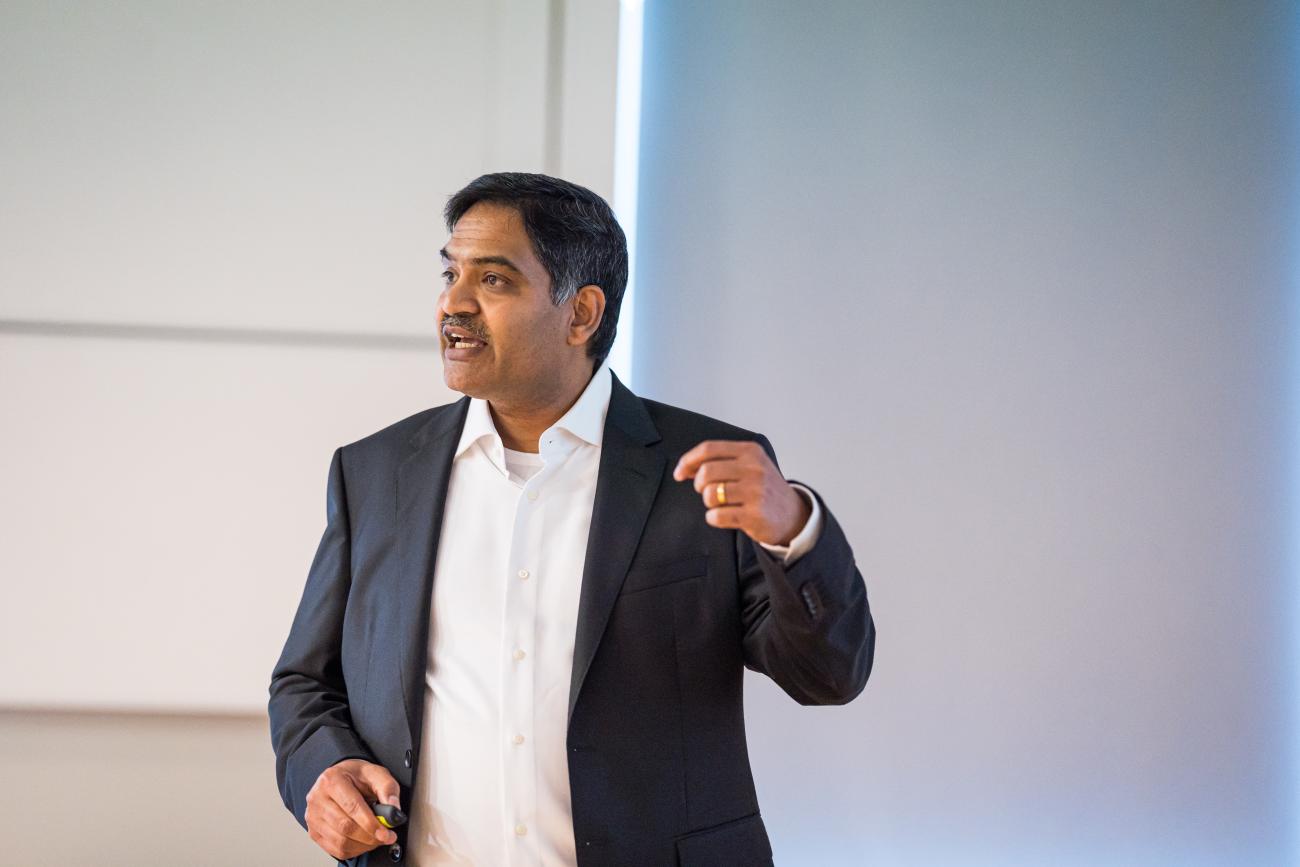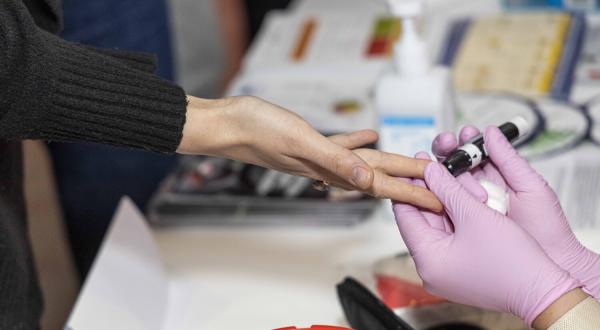Pioneering virology research: Tenured Professor Bhupesh Prusty’s impact at RSU
Bhupesh K Prusty is a tenured professor at Rīga Stradiņš University (RSU), focusing on host-virus interactions during herpesvirus infection and latency. His research aims to uncover how herpesviruses transition from harmless to harmful pathogens, contributing to diseases like chronic fatigue syndrome, long COVID, and multiple sclerosis. Prusty started his postdoctoral training with Nobel laureate Prof. Harald zur Hausen at DKFZ in Germany, and later made an independent research career at Julius-Maximilians-University of Würzburg. His work on HHV-6 pathophysiology earned him numerous international accolades and funding from prominent organisations.
He recently established a lab at RSU to further study viral infections and their role in chronic illnesses and autoimmune diseases, a critical research area with significant public health implications.
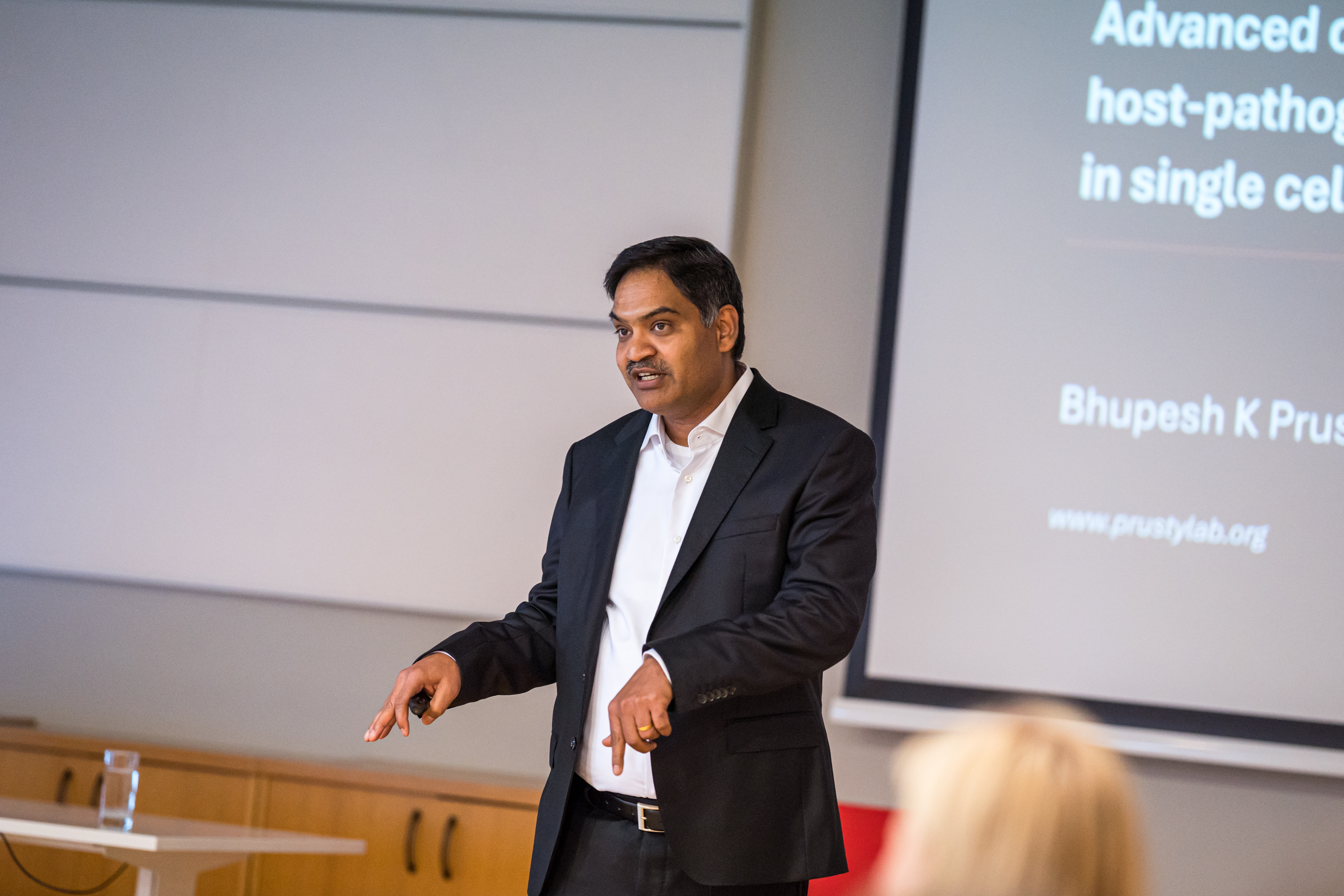
How did you end up at RSU and as a tenured professor at RSU?
I have been associated with RSU for a very long time collaborating with Prof. Modra Murovksa and Dr. Zaiga Nora-Krūkle. I came to RSU for the first time in 2016, and established some techniques I had developed in my lab. I visited every now and again since to attend scientific meetings, however when I saw the call for the position of tenured professor, I found the opportunity very interesting and applied.
Tell me about your field.
I'm a virologist by training, but I also have a lot of experience working with microbiology. In my lab, we focus on host-virus interactions and try to understand the crosstalk between the host and the pathogen. Some of the questions we look at are: what factors are important for pathogens' survival? What factors from the host side are important for defending against pathogenic infections? What happens when one fails? How can pathogens take over the whole cell? We mainly focus our studies on chronic viral illnesses like chronic fatigue syndrome, but recently, understanding long COVID has become critical. We try to understand why a host that is fit and fine one day suddenly falls sick to a virus infection that most humans can usually defend against. Some people cannot protect against infections and become chronically ill.
What attracted you to this field and what keeps your interest going every day?
I am a molecular biologist and I have always been fascinated with how cells work. Viruses are theoretically dead entities; they are only alive in our bodies.
It is very interesting to see how viruses have learned to manipulate us in the most beautiful way.
People say that the cell is the most fascinating thing ever created, but viruses are even more intriguing. I chose to work with one particular virus that lives in our bodies forever: the human herpesvirus. Some herpesviruses, like HHV-6 and HHV-7, can be genetically inherited – about 1-2% of the human population get one copy of the virus from their parents and the rest get infected. We keep them for the rest of our lives, but they don't leave the cell and usually don't do any severe harm. Sometimes, however, things go wrong and they come out of the cell. That's when we can start developing complex diseases that affect our autoimmunity. I find this fascinating: how can everything be fine and then change suddenly? What is the fine line that decides whether this relationship is going to be good or bad?
This is what keeps me occupied in the lab. I have been fortunate to work with some of the best minds. My first supervisor, Prof. Harald zur Hausen, was a Nobel Prize winner in 2008 for Physiology or Medicine and one of my other mentors, Dr. Dharam Ablashi, co-discovered HHV-6.
Tell me about the lab you run.
I have a lab at RSU that employs three people, but we're looking for more employees. I also have two students working in Germany, where I used to have a lab.
Are they coordinated or are you running separate projects in each?
All my projects focus on different aspects of host-pathogen interactions. Some of the projects could not come with me to Riga because they were funded by the German government or funding agencies. Other international projects are now transferred here. We are also starting several new projects here at RSU. All these projects will coordinate with each other.
Can you tell me about your international partnerships and collaborations in the medical field?
Our work in the lab bis primarily translational and touches upon several clinical topics. We have active collaborations with the Texas Medical Center and Bichat-Claude Bernard Hospital, Paris, and we work with paediatricians, dermatologists, heart surgeons, infection biologists, autoimmune experts, etc. There is always a possibility to develop collaborative projects with any branch of medicine that requires basic science input.
I would especially like to highlight that we specifically focus on developing novel antimicrobial devices for dentistry, for which we are keen to discuss new ideas.
We have a drug that we have already patented and that is FDA-approved in the US. We are interested in implementing different aspects of this drug in Latvia.
Tell me about the discussion that you held at RSU last week and what you wanted to get across to your audience.
The discussion introduced my work and what I do. One of the important goals of our lab is to nurture young minds. If I can interest even one young mind in what we do in the lab, then that is a much bigger achievement than just publishing papers.
I want students to understand that there is a possibility to do cutting-edge biological science in Riga. I would like to encourage medical students and other students to come to the lab and do projects on various topics.
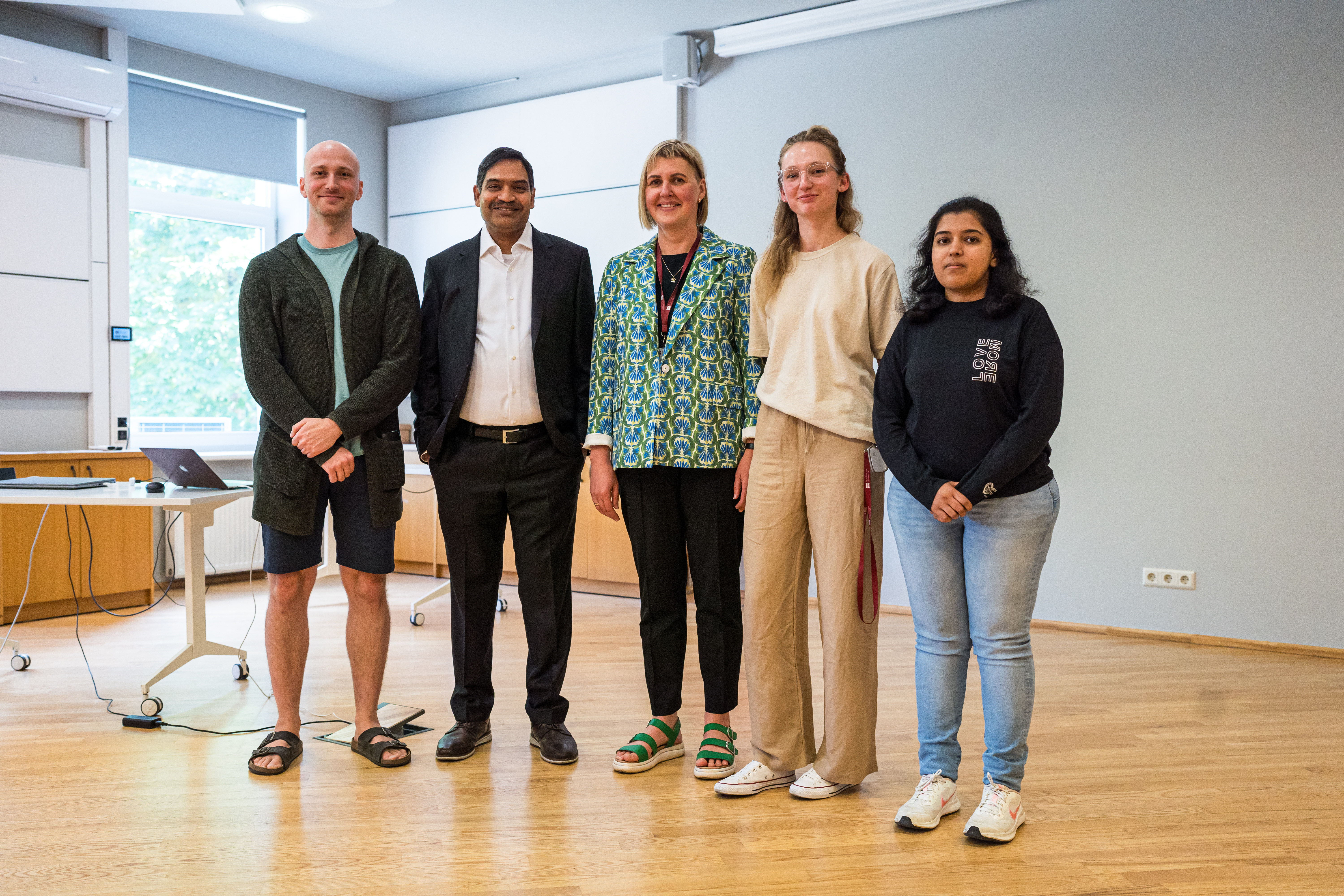
From the left: Mikus Melderis (researcher), Bupešs K. Prusti, Zaiga-Nora-Krūkle (Director and Lead Researcher at the Institute of Microbiology and Virology), Lība Sokolovska (researcher), Trushnal Shrikant Waghmare (researcher)
Another goal of ours is for everything that we do in the lab to reach clinics quickly and not take 10-20 years. This is, however, only possible when clinicians get deeply involved in every project that we do. I am eager to meet clinicians here and show what it is that we are doing and what projects we are working on. As you know, scientific research is always expensive and sometimes people cannot execute good projects because there is a lack of funding. We have initiated projects after coming to RSU, so the financial aspect of our work is very stable. We would like to utilise the funding to help medical students support their projects.
I read that you like to work in an interdisciplinary way. What would you say to a student whose focus isn't virology and who might think that what you have to offer doesn't align with their interests?
If I look at our work over the last 20 years, we have published a couple of clinical papers nearly every year. We develop cutting-edge techniques that can be implemented in clinics directly. What we need from clinical students is for them to understand the relevance of these techniques to their work and to come up with ideas that can make use of our expertise in the clinic and their expertise in dealing with patients and biological materials and then develop a project that can give results that can be directly applicable for clinics.
We always encourage clinical doctors and students that if they would like to do a project, whether it is for their PhD or thesis or a short or long-term project, they are always welcome to approach us with their ideas and see where our expertise can be helpful for them.
We will provide them with supervision, guidance and even funding to carry out those projects in our lab.
How do you juggle managing people and a lab and the paperwork that comes with it with working hands-on in the lab?
I work for 4-6 hours in the lab by myself, so I still find the time to stay actively involved with bench work.
For a scientist, there is nothing that makes us happier than doing experiments ourselves.
Of course there are times when it is extremely difficult because you are overloaded with submission deadlines, grant applications etc., but otherwise I manage to find time for lab work. It is always good to have a couple of motivated students in the lab who understand your goals and how to fulfil your dreams. I don't want to run a lab where I find one hour in a whole week to discuss things with my students. I would much rather work with them every day.
How do you see your work at RSU developing?
Two things motivated me to come to RSU. Firstly, in countries like Germany that have had more time and money to become technically advanced, you quickly reach a saturation level. Everything is available, but there is a bottleneck because of funding and scientific topic preferences.
As RSU and Riga are still in a stage where they’re developing their research infrastructure, there are plenty of opportunities for collaborative work.
Second, we are bringing some of the most advanced techniques and fascinating scientific concepts to Riga. We have already developed them in Germany, but now want to establish these techniques here so that more and more people can have the opportunity to make use of them. We aim to integrate many labs and clinicians from RSU or other universities in Riga into our work and support them in conducting relevant research.
I see signs of modernisation everywhere here, although only some things are being utilised to their full capacity. There is funding, but more support is needed in terms of knowledge and techniques. We want to fill this gap and help develop more modern research in natural sciences over here in the next couple of years.
Has changing environments helped you think differently?
Yes, it helps me to stay inventive. Scientific priorities are different here, which has taught me to be flexible when making decisions. There are also some unique difficulties here that prevent fast improvements within planned experiments. We always learn from our failed experiments. However, we should be able to respond rapidly to these failures and make necessary changes to achieve successful results. I am learning to adapt to the conditions here.
If you look into the past, most of the big scientific discoveries came about from mistakes and unexpected results. Planning in advance is good, but responding rapidly to changes is essential too.
